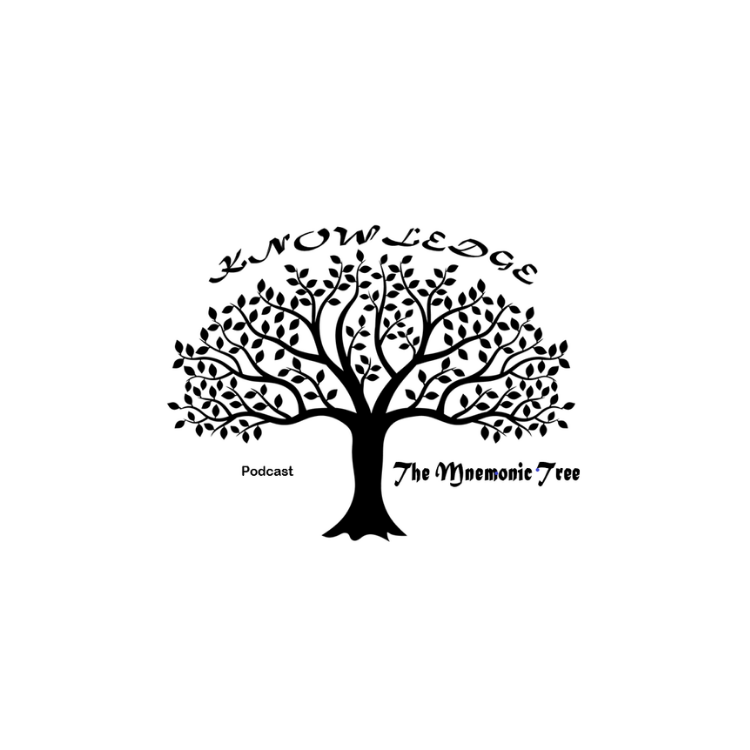Ep. 27: William Shakespeare – Top 9 Plays Mnemonic
Intro
Hello and Welcome to this episode of the podcast, "The Mnemonic Tree", where we add a single mnemonic leaf to our Tree of Knowledge.
Today's episode will be on one of the greatest playwrights of all time which is significant considering he wove his craft back in the 15 and 1600’s. Known as the “Bard of Avon” he was also quite the businessman, and of course I am speaking about William Shakespeare.
Today’s mnemonic will be on William Shakespeare’s top 9 plays.
So, with no further ado, we will begin with a summary from Wikipedia.
Wikipedia Summary
William Shakespeare (bapt. 26[a] April 1564 – 23 April 1616)[b] was an English playwright, poet and actor. He is widely regarded as the greatest writer in the English language and the world's pre-eminent dramatist.[3][4][5] He is often called England's national poet and the "Bard of Avon" (or simply "the Bard"). His extant works, including collaborations, consist of some 39 plays, 154 sonnets, three long narrative poems, and a few other verses, some of uncertain authorship. His plays have been translated into every major living language and are performed more often than those of any other playwright.[6] Shakespeare remains arguably the most influential writer in the English language, and his works continue to be studied and reinterpreted.
Shakespeare was born and raised in Stratford-upon-Avon, Warwickshire. At the age of 18, he married Anne Hathaway, with whom he had three children: Susanna, and twins Hamnet and Judith. Sometime between 1585 and 1592, he began a successful career in London as an actor, writer, and part-owner of a playing company called the Lord Chamberlain's Men, later known as the King's Men. At age 49 (around 1613), he appears to have retired to Stratford, where he died three years later. Few records of Shakespeare's private life survive; this has stimulated considerable speculation about such matters as his physical appearance, his sexuality, his religious beliefs and whether the works attributed to him were written by others.[7][8][9]
Shakespeare produced most of his known works between 1589 and 1613.[10][11] His early plays were primarily comedies and histories and are regarded as some of the best works produced in these genres. He then wrote mainly tragedies until 1608, among them Hamlet, Romeo and Juliet, Othello, King Lear, and Macbeth, all considered to be among the finest works in the English language.[3][4][5] In the last phase of his life, he wrote tragicomedies (also known as romances) and collaborated with other playwrights.
Many of Shakespeare's plays were published in editions of varying quality and accuracy during his lifetime. However, in 1623, John Heminges and Henry Condell, two fellow actors and friends of Shakespeare's, published a more definitive text known as the First Folio, a posthumous collected edition of Shakespeare's dramatic works that includes 36 of his plays. Its preface was a prescient poem by Ben Jonson, a former rival of Shakespeare, that hailed Shakespeare with the now famous epithet: "not of an age, but for all time".[12]
Extracted from: [https://en.wikipedia.org/wiki/William_Shakespeare]
Mnemonic
William Shakespeare – Top 9 Plays Mnemonic – MOATTT Keeps Romeo Home
(Picture a moat around a castle full of crocodiles not allowing Romeo to go out and see Juliet)
1. Macbeth
2. Othello
3. A Midsummer Night’s Dream
4. The Tempest
5. The Merchant of Venice
6. Twelfth Night
7. King Lear
8. Romeo and Juliet
9. Hamlet
Five Fun Facts
1. Shakespeare's works included at least 37 plays, 154 sonnets, and many poems. This along with introducing roughly 3,000 words to the English language.
Interestingly, he also made a performance about puns; it was a play … on words!
2. Shakespeare had seven siblings which included, two Joan’s, Margaret, Gilbert, Anne, Richard, and Edmund.
3. Shakespeare married when he was 18 years old. His wife Anne Hathaway was 26 and 3 months pregnant.
4. Shakespeare was a wealthy and successful businessman having a large property portfolio.
5. Shakespeare most likely died on his birthday. This is assumed from a record of his burial two days later, on the 25 April 1616, at Holy Trinity Church in Stratford upon Avon.
Three Question Quiz
Q.1. What Happened to Shakespeare’s Globe Theatre on the 29th of June 1613 during a performance of Henry VIII?
Q.2. Shakespeare put a curse on his grave. True or False?
Q.3. Shakespeare’s Stratford home was called what? Options are Old Place, New Place, or Best Place
Bonus Q. What did the Barman say to a rowdy, boisterous William Shakespeare when he walked into the pub?
Mnemonic Recap
William Shakespeare – Top 9 Plays Mnemonic – MOATTT Keeps Romeo Home
(Picture a moat around a castle full of crocodiles not allowing Romeo to go out and see Juliet)
1. Macbeth
2. Othello
3. A Midsummer Night’s Dream
4. The Tempest
5. The Merchant of Venice
6. Twelfth Night
7. King Lear
8. Romeo and Juliet
9. Hamlet
Three Question Quiz Answers
Q.1. What Happened to Shakespeare’s Globe Theatre on the 29th of June 1613 during a performance of Henry VIII?
A. Burnt down after a cannon shot set fire to the thatched roof
Q.2. Shakespeare put a curse on his grave. True or False?
A. True and the grave is still undisturbed
Good friend for Jesus’ sake forbear,
To dig the dust enclosed here:
Blest be the man that spares these stones,
And curst be, he that moves my bones.
Q.3. Shakespeare’s Stratford home was called what? Options are Old Place, New Place or Best Place
A. New Place
Bonus Q. What did the Barman say to a rowdy, boisterous William Shakespeare when he walked into the pub?
A. Oi, get out of here; your bard!
Word of the Week
mickle
[ mik-uhl ]
adjective
great; large; much.
Example
Shakespeare’s life works were mickle.
Extracted from: [https://www.dictionary.com/]
Website: https://www.themnemonictreepodcast.com/
Apple Podcasts: https://podcasts.apple.com/au/podcast/the-mnemonic-tree-podcast/id1591795132
Spotify: https://open.spotify.com/show/3T0LdIJ9PBQMXM3cdKd42Q?si=WQ1SnHo5QgOawX-mxS6yUA
References
https://en.wikipedia.org/wiki/William_Shakespeare
https://www.natgeokids.com/au/discover/history/general-history/shakespeare-facts/



